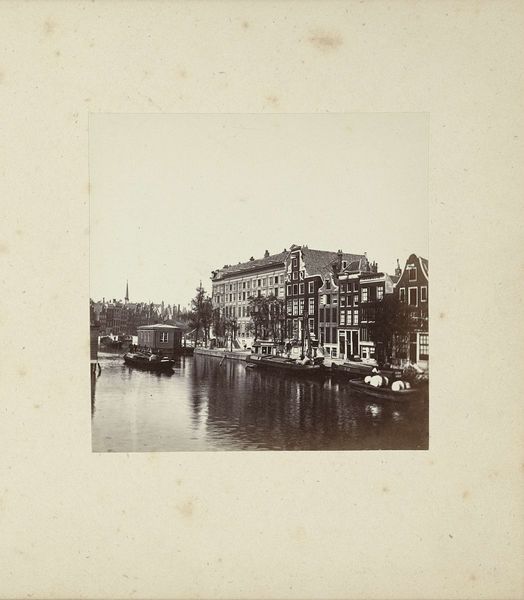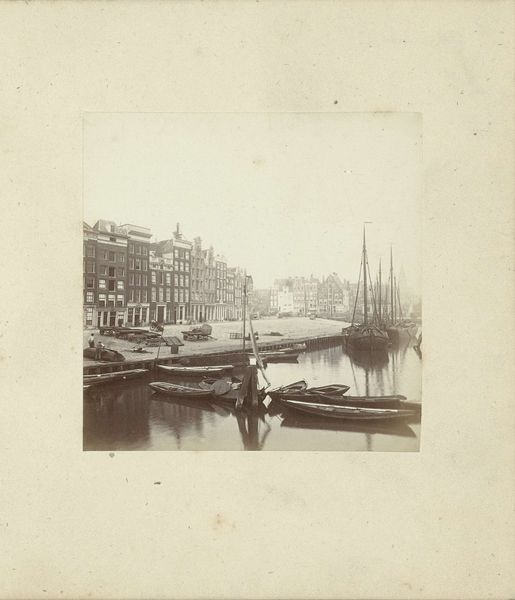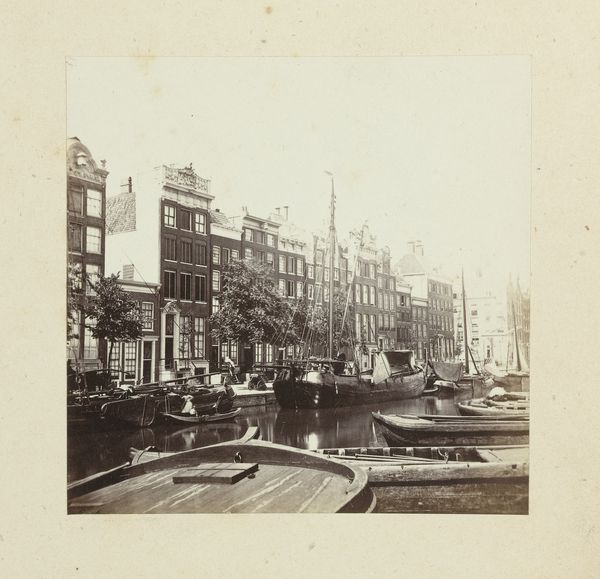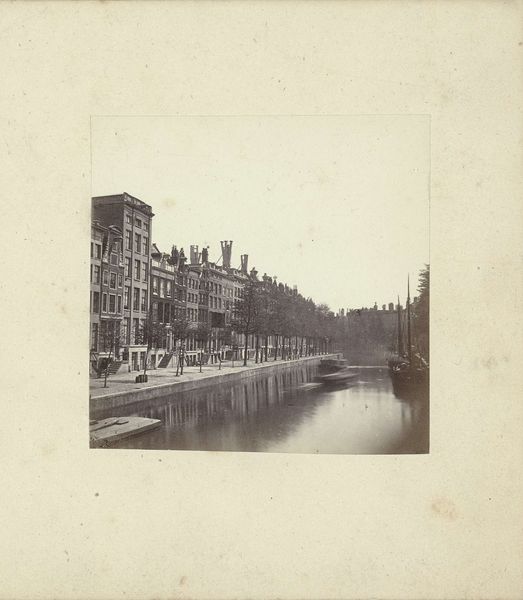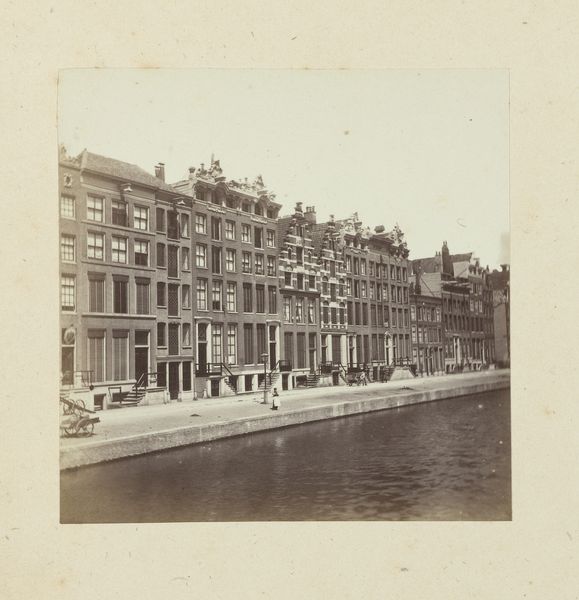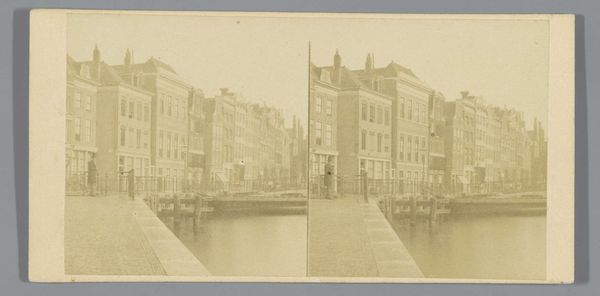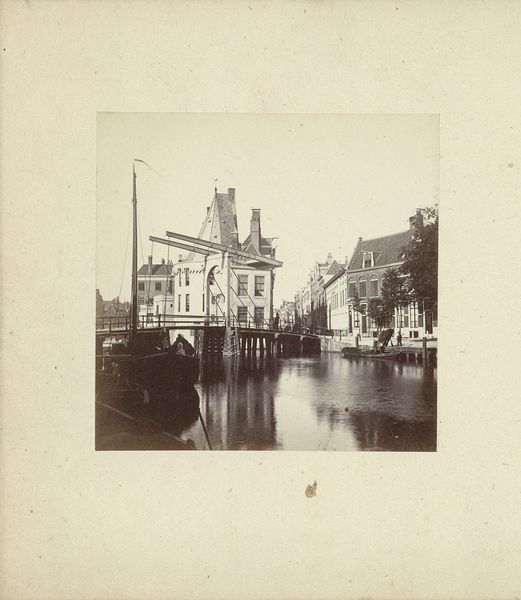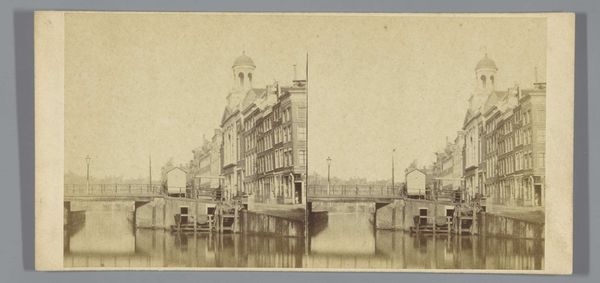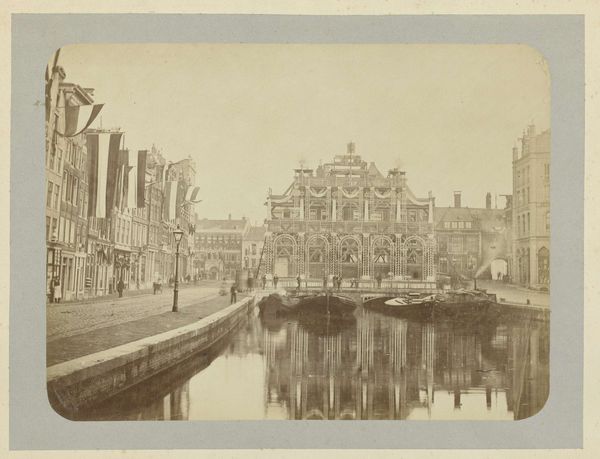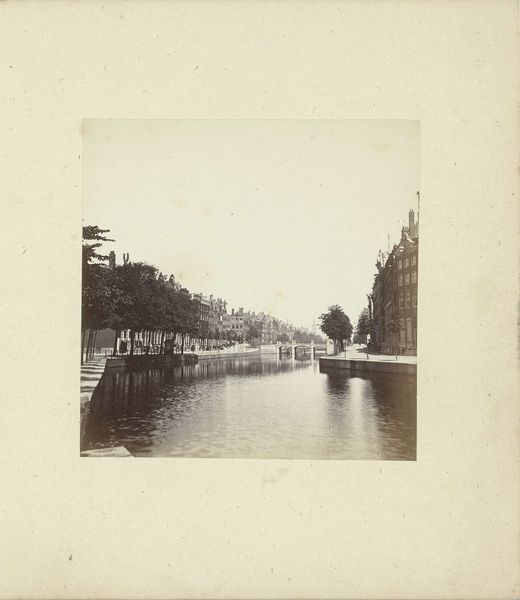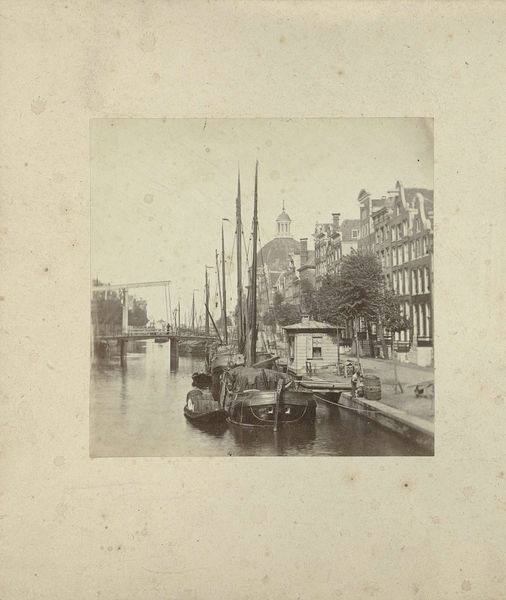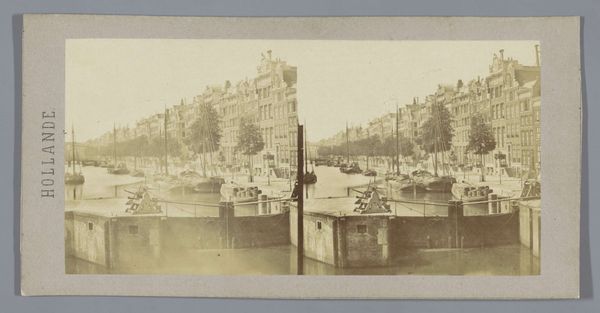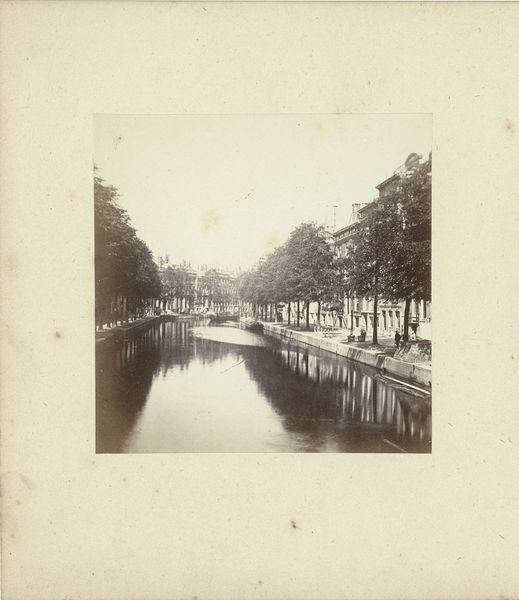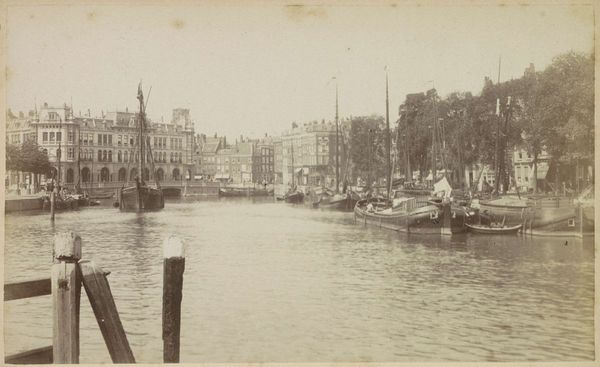
photography
#
photography
#
19th century
#
cityscape
#
realism
Dimensions: height 82 mm, width 82 mm, height 145 mm, width 234 mm
Copyright: Rijks Museum: Open Domain
This photograph of the Rijksmuseum in the Trippenhuis was captured by an anonymous artist using photographic techniques involving light-sensitive materials. Notice the variations in tone, from the dark reflections in the canal to the bright facade of the building itself. The making of this image involved a complex interplay of chemistry and light. The photographer used a camera obscura to project the scene onto a treated surface, likely a glass plate coated with light-sensitive chemicals. This captured a negative image, which was then developed and printed onto paper. The process, while cutting-edge for its time, was also labor-intensive. Each step, from preparing the chemicals to carefully timing the exposure, required skill and precision. This photograph encapsulates a moment in the history of image-making, where art and science converged. It shows how human labor was mediated through technological means in the early days of mass media and the culture of the spectacle. Looking at this photograph, we can appreciate not only the image it captures, but also the complex processes and social contexts that shaped its creation.
Comments
No comments
Be the first to comment and join the conversation on the ultimate creative platform.
